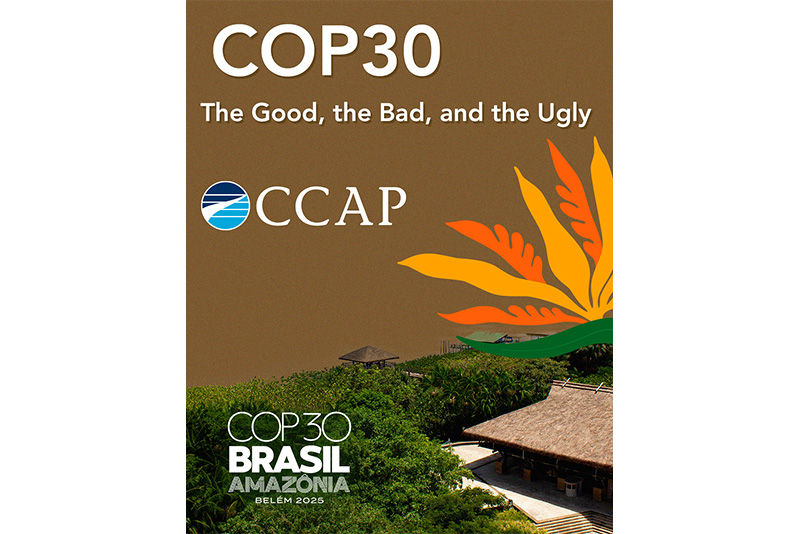Digging Deeper: Focusing more on Waste NAMAs throughout Latin America
- Michael Lagiglia
- Aug 14, 2013
- 3 min read
The waste sector is increasingly being viewed by Latin American countries as a target sector for the development of nationally appropriate mitigation actions (NAMAs) in order to not only reduce greenhouse gas (GHG) emissions but also provide sustainable development benefits. During CCAP’s Fifth Latin American Regional Dialogue on the Development of Nationally Appropriate Mitigation Actions (NAMAs) held in Lima, Peru last week, CCAP dug deeper giving participants the opportunity to hear expert presentations and interact, specifically in the context of the solid waste sector. The objective of the sessions was to educate and inform policymakers from various participating countries regarding the potential and challenges in the development and implementation of waste sector NAMAs.
Anmol Vanamali, Director of CCAP led the discussion, presenting the potential of waste NAMAs to reduce the greenhouse gas (GHG) footprint of the waste sector and to bring additional benefits, such as poverty reduction, job creation, health benefits, air quality, and displacement of fossil fuels. With the design of comprehensive waste NAMAs, tangible benefits can be shown to all stakeholders, such as higher incomes for waste pickers, lesser contamination of groundwater, decreased incidence of disease vectors around disposal sites, economic benefits from the sale of commodities such as compost, recyclables, and refuse derived fuel.
As developing countries move forward in the design and development of their NAMAs in an effort to make them finance-ready, CCAP provided expertise from various key stakeholders in the process and an opportunity to work one-on-one with consultants and professionals to pull the concepts together. Expert waste presenters such as Gary Crawford, vice president of sustainable development with Veolia Environmental Services, Magda Correal, manager of MAG Consultoria, Brad Johnson of RMA Consulting, and José Henrique Penido Monteiro, Senior Advisor with the Technical and Logistic Directorate of the Rio de Janeiro City Solid Waste Company analyzed different barriers that impede the implementation of integrated solid waste management policies. These included private sector investment, regulatory, finance, market, and social barriers. Likewise, the expert presenters coupled the barriers identified with potential policy solutions to overcome individual barriers based on proven experience.
For example, Gary Crawford provided a few success stories with Public Private Partnership (PPPs) initiatives in the United Kingdom and Egypt and the 2005 EU Landfill Directive, and Magda Correal shared her experience lobbying for tariff reform and other regulatory changes for the Colombian Waste NAMA. Brad Johnson spoke to the importance of financial mechanisms that lower risks and increase private sector involvement, highlighting that in the Colombian Waste NAMA a $40 million investment can mobilize around $248 million of private sector capital. Finally, José Penido stressed the lessons learned from Brazil’s path-breaking experience in formalization programs for informal waste pickers.
During the interactive “NAMA barriers and solutions” session, participants met to discuss the potential for NAMAs to be a vehicle to overcome barriers for integrated solid waste management policy implementation within Peru, Uruguay and Costa Rica specifically. Later, specific NAMA presentations were centered on Costa Rica and Chile’s considerable progress toward developing successful waste NAMAs in their countries.
As a result of these sessions, policy makers understood not only the opportunities in the waste sector for developing NAMAs but the possibilities for doing so within the context of their countries. Moving forward, CCAP will continue to work with participants both on the ground and through the Mitigation Action Implementation Network (MAIN) to design, develop and implement NAMAs in the waste sector.





Comments